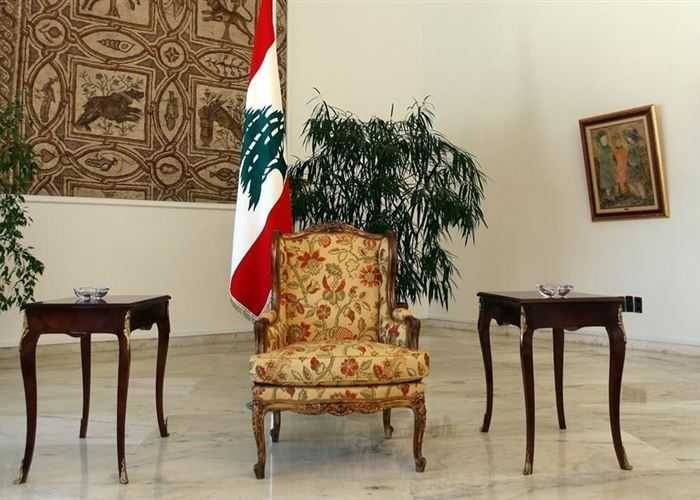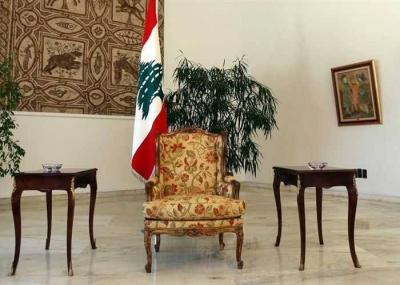The meeting of the ambassadors of the Quintet committee in Lebanon, called by U.S. Ambassador Lisa Johnson and attended by the ambassadors of Saudi Arabia, France, Egypt, and Qatar, focused on evaluating their communications with parliamentary bloc leaders to facilitate the election of a president. Buying time will not change the current situation and will increase tension, which will inevitably lead to the postponement of the presidential election, especially since those responsible for completing this constitutional mandate show no willingness to meet halfway and respond to regional and international calls urging them to achieve this by the end of June, before the current U.S. administration, as Western diplomatic sources told “Asharq Al-Awsat,” turns its attention to the campaign of President Joe Biden for a second term in the White House.
Western diplomatic sources revealed that there is nothing new for the ambassadors of the Quintet that would necessitate renewing their extensive communications, at least in the near future, not only because of the divisions among parliamentary blocs that hinder the presidential election but also because Hezbollah prioritizes stopping the Israeli war on Gaza, which is expected to also affect southern Lebanon. Consequently, it closes the doors to any possibility of separating the two fronts to focus on the presidential election, prompting the ambassadors to slow their efforts until the situation on the Gaza front becomes clearer.
The sources noted that the Quintet ambassadors' mission is to support local efforts to facilitate the presidential election, as they form a support and assistance group to help extricate the election from the quagmire of obstruction. They stated that the ambassadors confirmed their support for the initiative launched by the Moderation parliamentary bloc, but it faced difficulties in overcoming obstacles, particularly regarding the deep divisions between the opposition and the Resistance axis over who should call for dialogue and who should sponsor it. Hezbollah maintains its position, insisting that Parliament Speaker Nabih Berri preside over the dialogue table.
The sources also pointed out the difficulty of making any significant breakthrough to pave the way for meeting and dialogue among the parliamentary blocs, although these blocs responded positively to the Moderation bloc's initiative but did not provide the necessary support to activate it, almost as if they wanted to absolve themselves from the responsibility of obstruction without appropriately engaging.
The diplomatic sources questioned the reasons behind the reluctance of candidates, except for former MP Sleiman Franjieh, former minister Jihad Azour, and MP Ni'mat Afram of the National Movement, to announce their candidacies. They mentioned that the committee of ambassadors is currently preparing its report to be submitted to the foreign ministers of the Quintet member states, hoping they might propose new ideas that would allow them to resume their efforts, so as not to remain stuck in a vicious cycle, even though the ambassadors avoid discussing the names of candidates, even inquiring about them.
They also asked whether Hezbollah is prepared to enter a settlement leading to agreement on a consensual president, or if it and its ally Speaker Berri still cling to Franjieh's candidacy? Despite the fact that Hezbollah views the presidential election through a regional lens, closely linked, politically speaking, with Iran, which will not willingly relinquish the presidential card and bets that the United States will reach out to ask, "What can be done to stop the vacancy in the presidency?" This allows it to reserve a seat at the presidential settlement table.
The same sources refuted any rumors about a disagreement between Washington and Paris regarding their approach to the presidential file, stating that there is no ground for rivalry or aversion between them, especially after the visit of French presidential advisor Jean-Yves Le Drian to Washington. They confirmed that Paris's stance on Lebanon remains under the American umbrella, even as the U.S. administration does not mind allowing some room for maneuver, based on its special relationship with Lebanon, which means a lot to it, and it will not leave it alone amid the difficult conditions it is facing.
Although these sources do not justify the motivations that led Hezbollah to link the calm in southern Lebanon with the ceasefire on the Gaza front, they see that its support for Hamas aligns with preserving the role of the Resistance axis, led by Iran, in any settlement, should conditions arise to revive communications to accomplish it. They added that the possibility of separating Gaza from southern Lebanon is almost impossible, especially in light of Speaker Berri's strict remarks on the second version of the French paper. They indicated that Tel Aviv encounters American rejection if it proceeds to expand the war in southern Lebanon.
They affirmed that the confrontation between Hezbollah and Israel is currently experiencing an unprecedented escalation, surpassing engagement rules with mutual bombings in depth, but this will not lead to an expansion of the war from Tel Aviv in the absence of American cover, with repeated messages carried by Secretary of State Anthony Blinken to Prime Minister Benjamin Netanyahu. The parliamentary blocs were urged to seize the opportunity if a ceasefire was reached on the Gaza front to reactivate the presidential file and extricate it from the vicious cycle, alongside the efforts of U.S. mediator Amos Hochstein to stabilize the ceasefire on the southern front.
The sources believed that it is necessary to seize the opportunity to elect a president, lest the U.S. administration's involvement in renewing Biden for a second term leads to postponing the election until 2025, according to "Asharq Al-Awsat."




